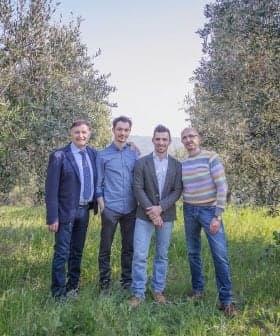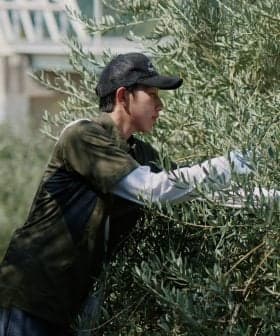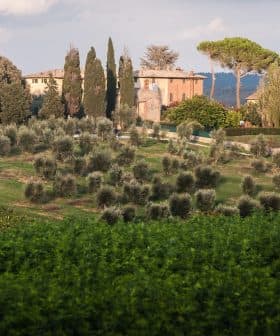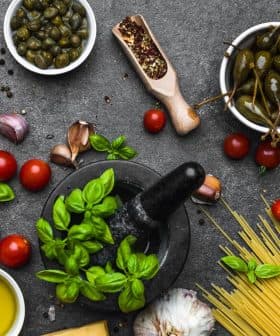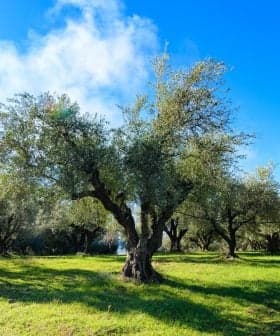History and Terroir Guide Award-Winning Producer in Puglia
More than a century of olive oil production experience allowed the families behind Olio Mazzone to overcome a highly challenging season to triumph at the 2023 NYIOOC.
 (Photo: Olio Mazzone)
(Photo: Olio Mazzone) Despite facing challenges from climate change and market conditions, Apulian producer Olio Mazzone has continued to produce award-winning extra virgin olive oil, with its Coratina monovarietal winning a Gold Award at the NYIOOC World Olive Oil Competition for the fourth consecutive year. The family’s success is attributed to their history and experience in olive oil production, with a focus on quality over quantity and the ability of their olive trees to thrive in challenging conditions.
The impacts of climate change and challenging market conditions have not hampered the efforts of Apulian producer Olio Mazzone to craft award-winning extra virgin olive oil.
Against all odds, its Coratina monovarietal recently won a Gold Award at the NYIOOC World Olive Oil Competition for the fourth time in a row.
This is a confirmation that the most beautiful things in life come at a cost, that the most beautiful things happen through sacrifice.
“We had such a difficult season that winning the Gold Award once again came as a surprise to us,” owner and miller Giuseppe Campanale told Olive Oil Times. “We had to cope with weather extremes, the drought and olive fruit fly infestations. All of this came coupled with a lower olive yield.”
According to Campanale, the company’s consistent success is rooted in history and learned experience.
See Also:Producer Profiles“Experience is what makes you choose the best olives, to look at the olive trees and choose the ones you want to get the highest quality from,” he said.
Since 1920 and over four generations, the Mazzone-Campanale family remained focused on olive oil production through challenging times, including World War II.
“These experiences come from a life spent in an area largely characterized by olives,” he said. “Here, in Ruvo di Puglia, we are about 25,000 residents, and all families here have olive trees. We talk of olives and olive oil; we all have a broad understanding of quality.”
Not far from Bari, olive trees thrive on Ruvo di Puglia’s hills and gentle slopes, characterized by moderate temperatures and medium winds coming from the sea, ten kilometers away.
The Campanale family manages two small lots of olive trees, with about 1,000 trees spread over four hectares.
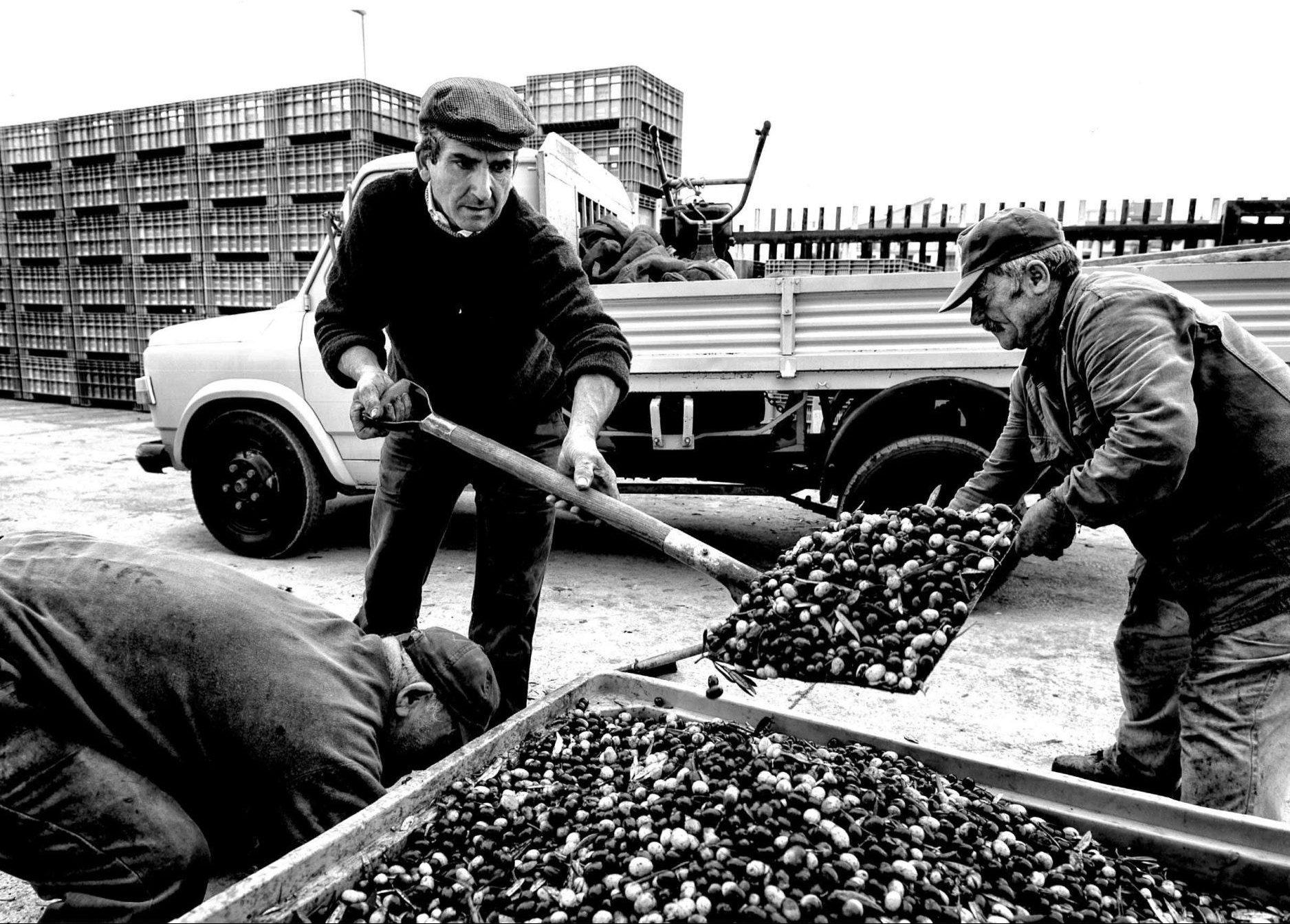
Historical photo of the olive harvest at Olio Mazzone
According to Campanale, the soil has an exceptional profile crucial to producing high-quality extra virgin olive oil.
“I know that there are many areas where growing olives might be incredibly challenging,” he said. “Over here, instead, we are blessed with the perfect soil for the Coratina olive trees, a cultivar that expresses itself very well in the area.”
“Our olive trees have to cope with rocky land, which makes it harder to absorb nutrients,” Campanale added. However, the rocky soil is also well-drained, preventing some common diseases associated with stagnant groundwater from spreading.
“They can overcome those challenges and thrive in these conditions that make our Coratina olives exceptional,” he said.
According to the Apulian producer, there is a direct correlation between quality and the ability of the trees to overcome such hardships and sustain their growth.
“Nothing good comes from too much comfort,” Campanale said. “You might have significant olive yields if you have irrigated and fertile olive orchards. But if you are searching for that special quality from the olive, this is not where one should look.”
“This is a confirmation that the most beautiful things in life come at a cost, that the most beautiful things happen through sacrifice,” he added.
Campanale noted how his goal for the season was to produce about 1,000 liters of the special high-quality extra virgin olive oil awarded in New York.
“The winning olive oil is medium fruity with a persistent green aroma,” he said. “One of its characteristics is the perfect balance of bitter and piquant. Sometimes in Coratina monovarietals, you might find a dominating bitter note, but not in our case.”
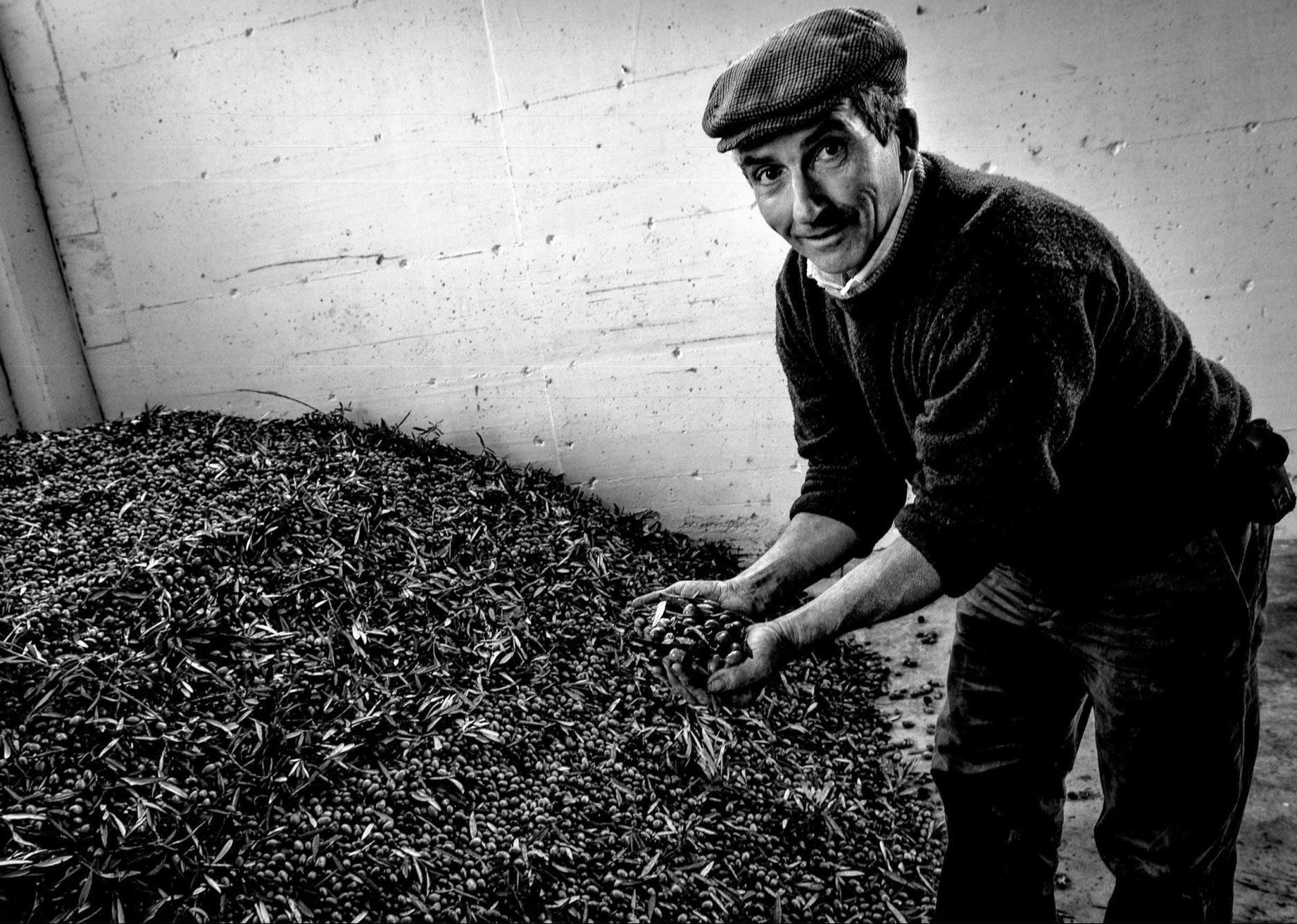
Giacomo Mazzone
That is not the sole production of the Campanale family, though. Besides their olive trees, the family continues offering olive milling services to the many small local producers. “That is what our family did for more than a century,” Campanale said.
“Thanks to the memories of my father’s aunt, Nunzia Mazzone, who was still with us 10 years ago, we know that between 1920 and 1922, her father, Tommaso Mazzone, opened the mill,” he added.
“It was a press with mules used to make the grinders crush the olives,” Campanale continued. “Those were times when olive oil and water would be separated by adding hot water so the olive oil would come to the surface and be collected.”
Over the decades, the mill closed down several times, but the family always found a way to revive it, even after the closure due to World War II.
After many difficult years, in 1960, Gino Mazzone took the reins of the olive mill. Then, in 1967, a major technological overhaul signalled a new beginning for the Mazzone-Campanale family and their milling activities.
Campanale said two decades later, the family went through a very challenging period, with the subsequent deaths of several relatives, including Gino. “For two years, the Mazzone olive mill closed shop,” he said.
However, In 1991, Gino’s only nephew, Giacomo, built a new mill in Ruvo, which he named Mazzone Olive Oil Mill. “Giacomo knew of the many events the family had gone through and was aware of Gino’s sacrifices; he did not want that family tradition to disappear,” Campanale said.
“I grew up in this world,” he added. “When I was a kid, the olive harvest was a truly significant moment for the community to gather and celebrate our trees.”
“At the time, when small olive producers came to the mill, we all knew the value of those olives,” Camapnale concluded. “We all knew the sacrifices and the hardships that these people went through before the harvest. The olives were as precious as their memories.”
Share this article


